Total Eclipse Travel: U.S. Hotel Bookings (and Prices) Skyrocket 3x

Just how popular is the total solar eclipse? In 2017, the event was seen either in-person or online by an estimated 88% of U.S. adults (~215 million people) — more than the 2024 Super Bowl, 2020 presidential debates, or the 2008 Beijing Olympics…the most-viewed Olympic Games in history.
But if you missed the last one, NBD: Americans have another chance to catch the rare occurrence this spring before it goes on a 20-year hiatus. On Monday, April 8, a total solar eclipse (when the sun, the moon, and Earth all temporarily block the sun’s light) will cross a swath of North America, offering millions of spectators the chance to see the sky darken and an illuminated halo emerge overhead.
Since nearly 500 cities across the U.S. lie in the path of complete totality, we wondered how this momentous event would impact travel demand and prices. So we donned our special eclipse glasses (as should you — check out NASA’s safety guidelines page) and dug into Navan’s booking data to find the most popular U.S. cities for eclipse sky-watchers this year.
Let’s go.
Travel Demand is Out of This World
While most U.S. cities will have the opportunity to witness at least a partial view of this historical event, the most striking views will require being within the path of totality. That, of course, has caused a surge in searches and bookings for flights, rental cars, and hotels in these areas.
As compared to an equivalent search window and travel days during the week prior to the eclipse, aggregate searches for solar eclipse travel have increased 3x, with hotels up 306%; flight searches up 107%; and car rental searches up 241%.
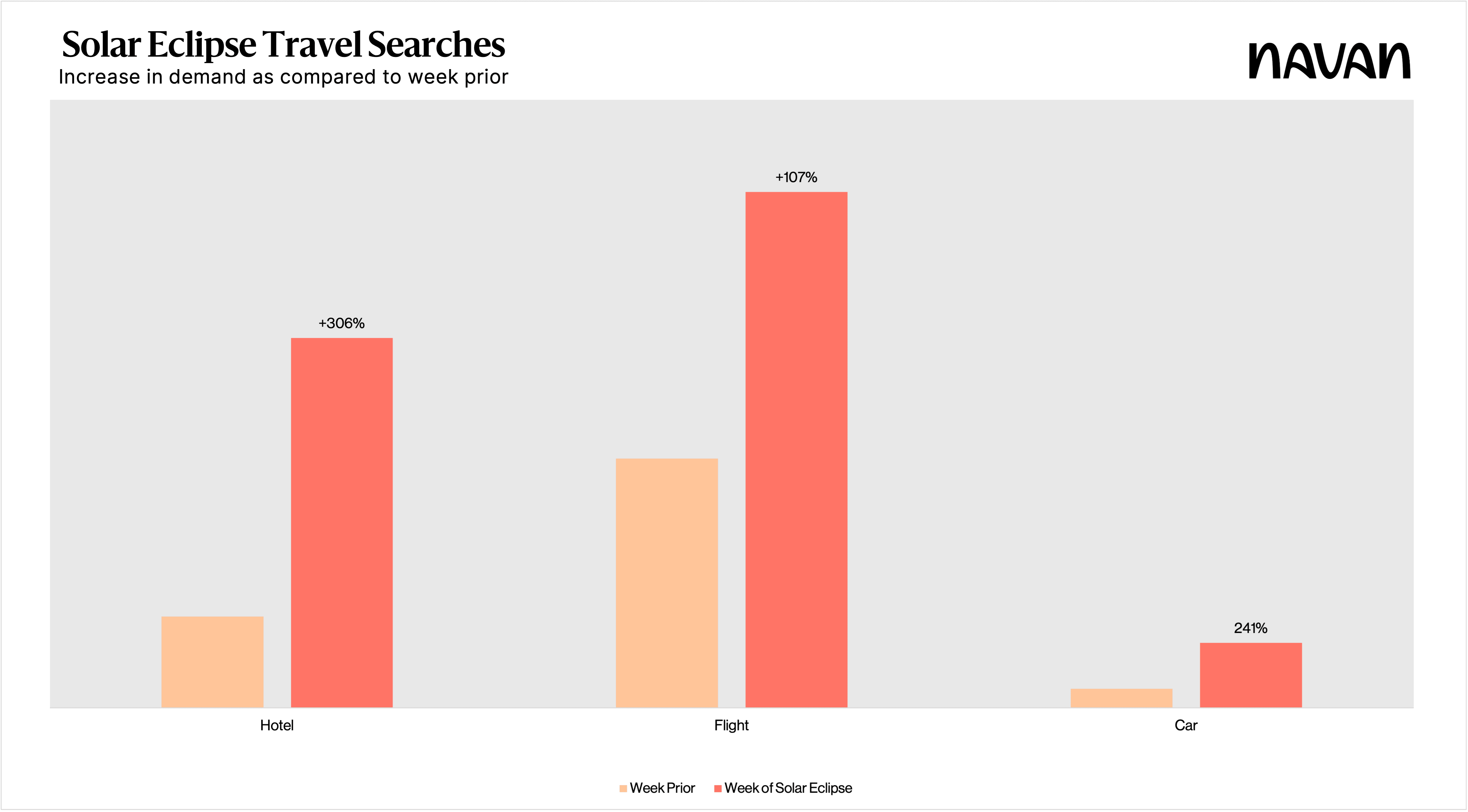
Aggregate bookings for hotels, flights, and car rentals have also increased 3x, with hotel bookings up 315%; flight bookings up 110%; and rental car bookings up 212% (compared to equivalent search and booking windows the week prior to the eclipse).
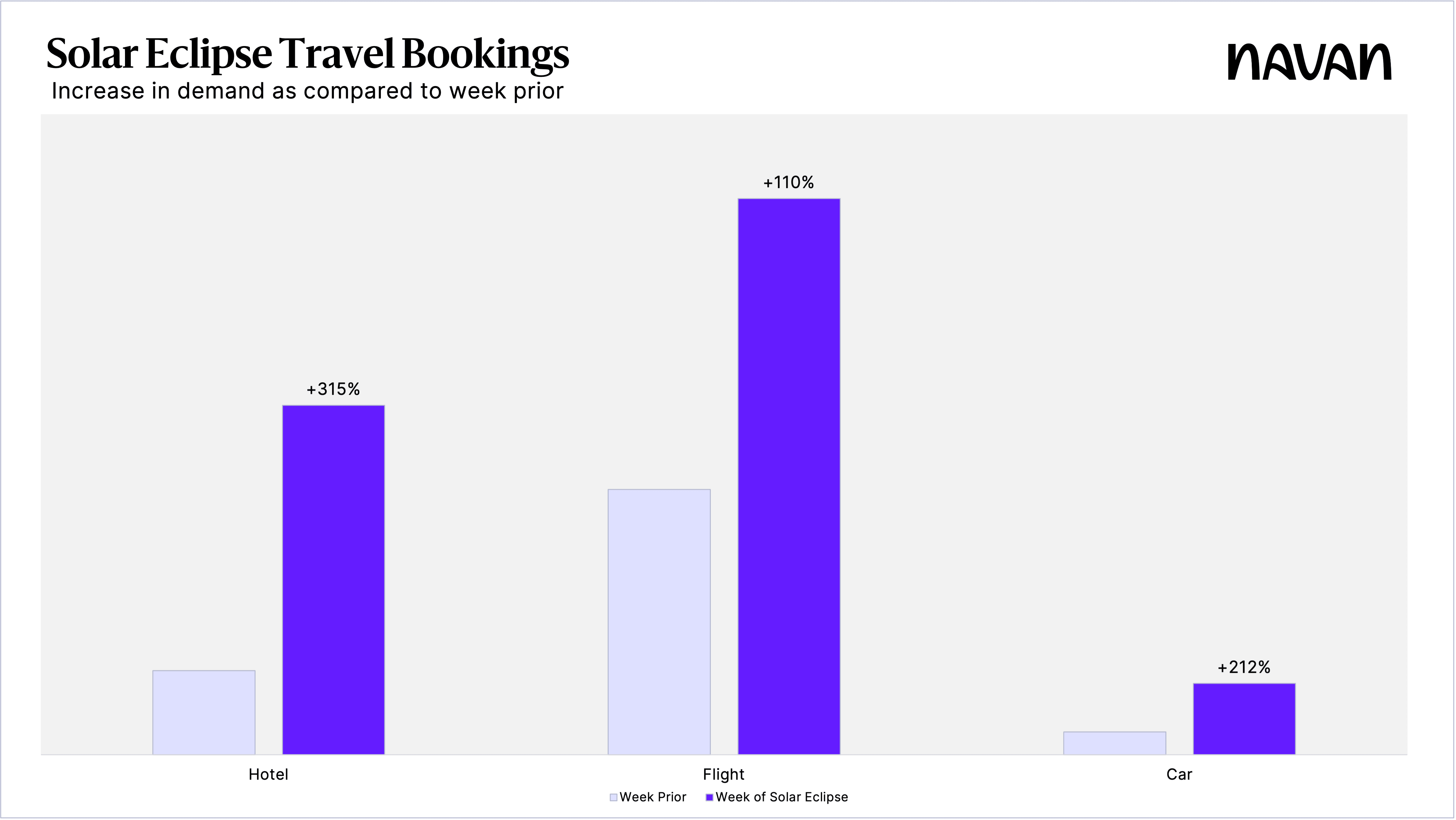
Total Eclipse of the Heart Hotel Demand
Considering the massive spike in overall travel demand to view the eclipse, we wondered which cities have seen the biggest increase in hotel searches and booking volume.
The 10 most-searched destinations for hotels were spread across the path of totality; Texas was the most-searched state during the week of the total solar eclipse, followed by Indiana.
While searches reveal traveler intent, the financial impact of big events like the solar eclipse is only felt when travelers actually book.
The winning cities — those with the most hotel bookings during the eclipse — are Austin, TX (+421%); Dallas TX (+571%); Columbus, OH (+283%); Montreal, QB (+78%); and Indianapolis, IN (+130%).
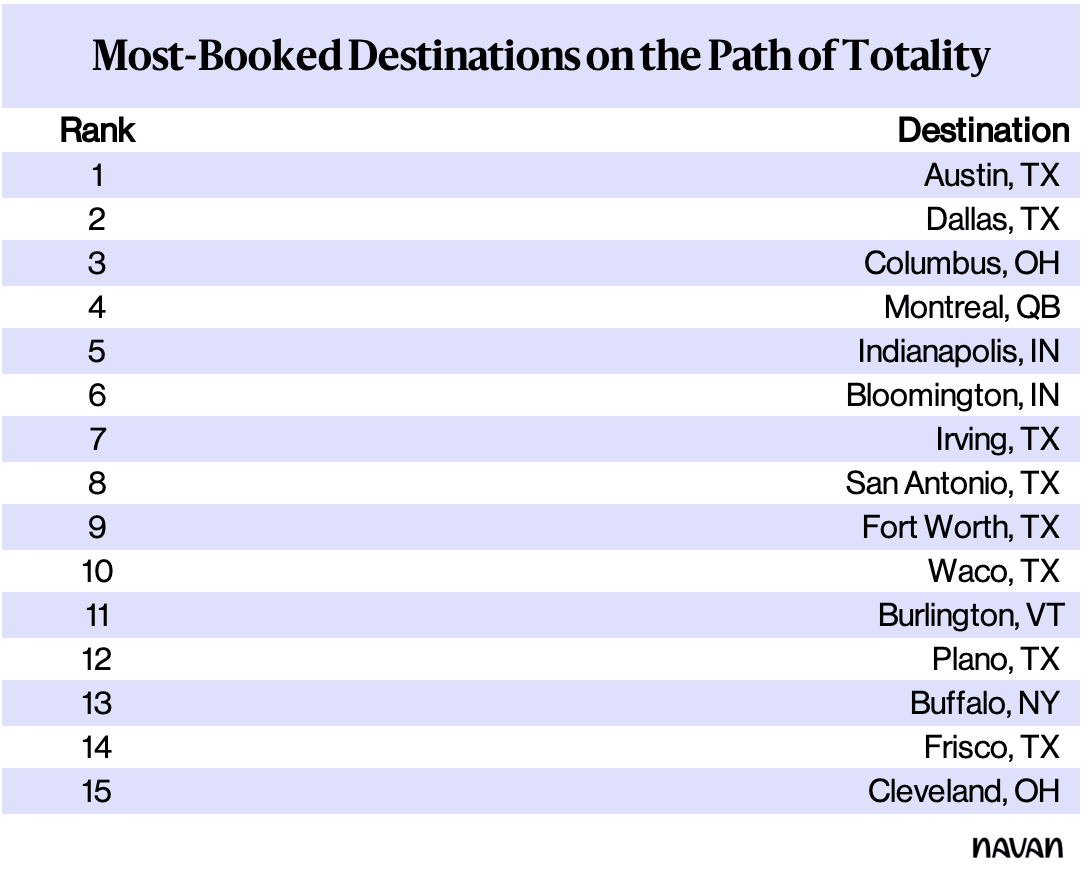
Where Prices Have Climbed Sky-High
As with holidays and other popular travel events, higher demand means higher booking prices. And it’s the better-known cities that have seen the biggest increases in booking prices.
Coming in at No. 1 for the largest jump in average hotel booking price is Niagara Falls, NY, with prices per night up 249% on average. Other cities on the path of totality seeing steeply rising prices during the week of the eclipse include Waco, TX (+81%); Addison, TX (+77%); Burlington, VT (+35%); Austin, TX (+34%); and Cleveland, OH (+33%).
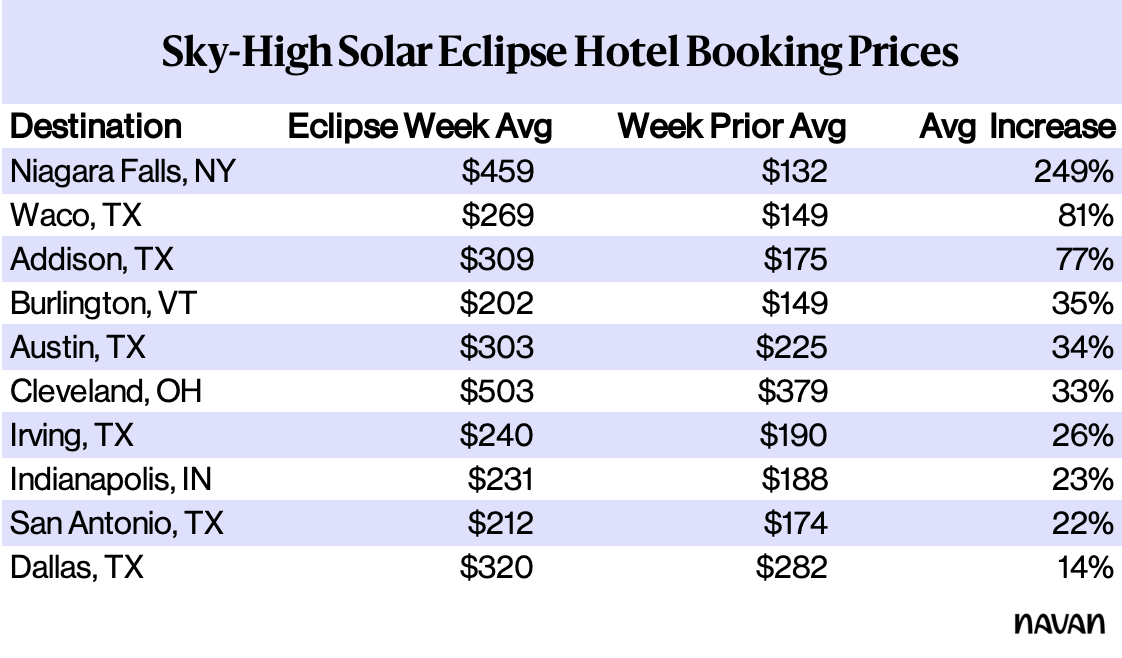
Total Solar Eclipse Steals
But don’t be discouraged. For travelers eager to catch the solar eclipse but not break the bank, booking prices in plenty of alternative cities on the path of totality are trending lower than the week prior.
Navan data show that travelers can find the lowest hotel booking prices in Texas and Indiana. Specifically, travelers can save the most by booking hotels in Evansville, IN (-59%); Lubbock, TX (-29%); or Plano, TX (-29%).
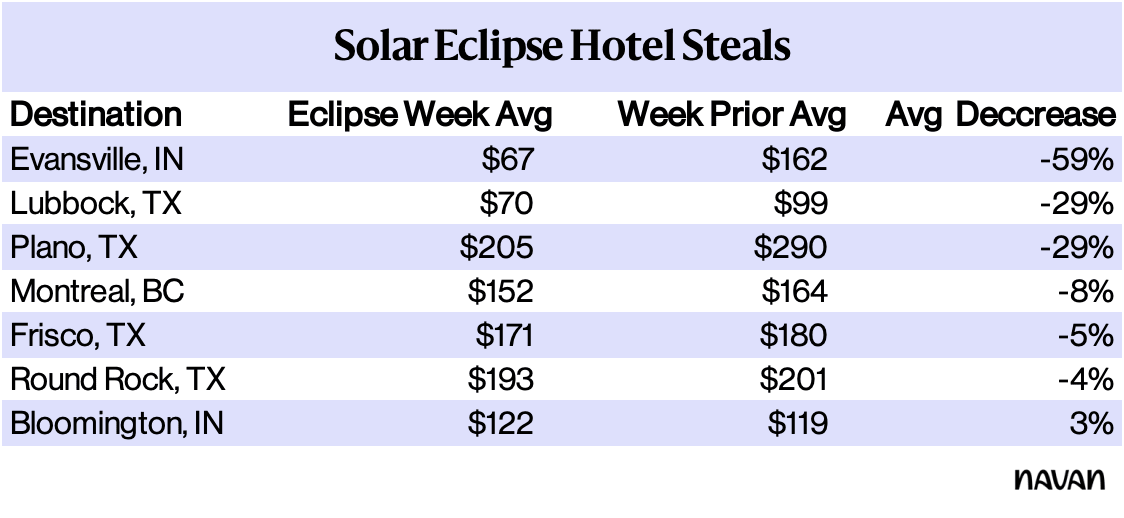
Conclusion
Whether you’re heading to one of the many towns on the path of totality in Texas or choosing an option further north, like in New York or Vermont, you’ll find hotel options for all budgets.
And to save even more, be sure to book your solar eclipse travel on Navan, where you can access exclusive corporate negotiated rates and see for yourself how the platform makes personal travel easy.
Finally, don’t forget: Watch the eclipse safely so you can also catch the next one in 20 years!
Methodology
Navan analyzed hotel booking data with a start date of Apr 5–Apr 9, 2024, as compared to hotel booking data with a start date of Mar 29–Apr 4, 2024. Navan also analyzed hotel booking and search data with a start date of Apr 5–Apr 9, 2024, and compared that to hotel booking and search data during the same window in the week and the year prior.
This content is for informational purposes only. It doesn't necessarily reflect the views of Navan and should not be construed as legal, tax, benefits, financial, accounting, or other advice. If you need specific advice for your business, please consult with an expert, as rules and regulations change regularly.
More content you might like
Take Travel and Expense Further with Navan
Move faster, stay compliant, and save smarter.

